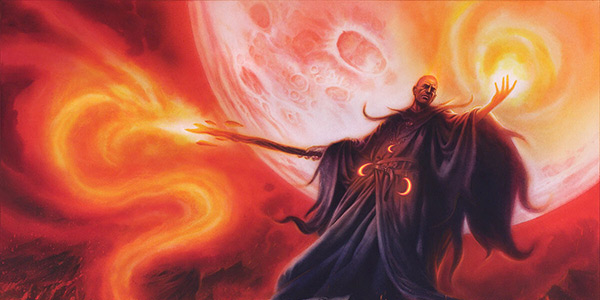In the old days, a major change to the mechanics of a new edition usually resulted in some sort of major, world changing event or cataclysm so that the new rules work with the revised setting. Because sadly, game worlds are created with editions in mind.
Eberron was created with 3e in mind, and it's updates have been lackluster as a result.
Dark Sun really doesn't work the same way after 2e; crazy psionic wild talents and strange rebalancing of classes* (not to mention jacked up ability scores) just don't jive with modern game design.
*some classes have their magic removed, like the Bard, and others double down on their magical abilities at very high levels.
And talking about what has been done (and undone) to the Forgotten Realms is a thread in of itself.
Dragonlance has dealt with this as well over the years.
It seems WotC has learned that radically altering a setting upsets the fans, but it's hard to have it both ways; you can't turn back the clock and have a setting work just like it did back in the day when so much has changed about the game. Because it's not just more races, classes, and subclasses that have changed; the classes themselves are not the same as they once were.
Heck, even Dragonlance introduced strange new rules for it's own setting in the past; like the complex system of advancement for the Knights of Solamnia, with entirely different classes for each of it's sub-orders, the ebb and flow of magic as a result of the moon phases, dividing all Wizard schools into three different subclasses (White, Red, and Black), and so on.
This used to be par for the course with many settings; many pages would be devoted to what's different, and what's allowed. Ravenloft came with a dozen pages of altered spells and even class abilities, ranging from "nope, doesn't work" to "oh you want to have an animal companion? Let's see what the Dark Powers have to say about that!". Planescape was the same way, and even Spelljammer had copious notes on how some spells could be used in space travel (and what spells would lead to doom in the Phlogiston). Dark Sun had, as mentioned, altered and even bespoke classes (Defiler, Templar, and Gladiator). Council of Wyrms had you playing actual dragons!
There's a reason why we see so much Forgotten Realms stuff from WotC; it's the setting that, at least on the surface, is the most like the base game (if one ignores spelldancers, spellsingers, spellfire, circle magic, incantatrixes, elven high sorcery...).
But these days, you walk a tightrope when you try to update an old setting. A lot of what made it unique was an artefact of the time it was created, and the days when you'd get a huge boxed set to cover all of what made the setting unique and different from any other game of D&D. WotC's business model doesn't support that, so any product is going to include:
*a brief summary of what the world and setting are like.
*some new character options.
*maybe a few alternate rules.
*monsters.
*maybe some brief notes on how to recapture the classic "feel" of the setting.
*a huge pile of "and you can figure out the rest on your own" for DM's.


 www.dndbeyond.com
www.dndbeyond.com



